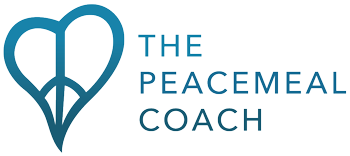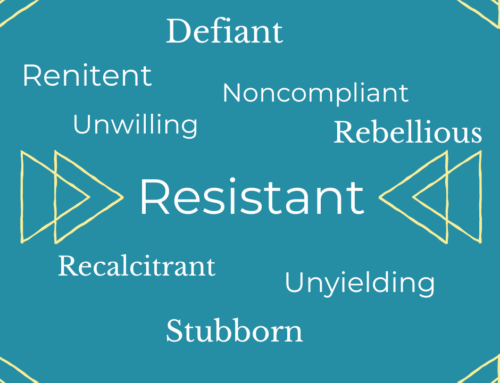
Learning how to separate your feelings about your child from your feelings about anorexia empowers you to be the mom or dad you want to be. Externalizing anorexia is a common strategy suggested to parents while they are caring for their loved one. In fact, separating the person from the eating disorder is part of Family-Based Treatment (FBT).
One way to create this separation is for parents to see anorexia as an unwanted external force that has taken over their child’s behavior. By viewing anorexia as something outside their daughter or son, parents can “fight” the anorexia without fighting their child.
Simply separating anorexic behaviors from their child can be useful for parents. But what is more powerful for parents is taking this a step further. By learning to separate your feelings about your child from your feelings about anorexia, you can stay focused on the love and compassion you have for your child instead of acting from your negative feelings about anorexia.
Recognizing Eating Disorder Behavior
Where did my child go? By the time my daughter was diagnosed with anorexia, it had been quite a long time since she had consistently acted like “herself.” What I mean by that is, long before she had the substantial weight loss and resistance to eating that are recognized as anorexia, her behavior had changed. It changed over time, and since she was a young teenager, it became hard to tell the difference between something being seriously wrong, and a teenager being a teenager. Gradually, I adjusted to the changes in her behavior, and it wasn’t until her dramatic weight loss that I connected the changes in her behavior to the eating disorder.
A recommended strategy for parents is to separate their child from the anorexia. In other words, you can learn to see any eating disorder behavior that your child displays as the illness, not as your child. Knowing the difference can be extremely helpful. To separate anorexia from your loved one, make a list of behaviors that you think are being caused by anorexia.
Here are some examples of eating disorder behaviors you may be seeing in your teen:
- Completely refusing to eat
- Crying at the table
- Standing most of the time
- Cutting her food into tiny pieces
- Only eating very few “healthy” foods
- Pacing all day/never sitting still
- Constantly checking the mirror
- Throwing food onto the ground
- Self-harming
- Reacting with anger when you try to talk to them
- Accusing you of trying to make them fat
- Lying to you about what they have eaten when you aren’t with them
- Telling you not to give them certain foods
- Wiping butter or sauces off of food with napkin
- Belching and gagging
- Complaining of severe stomach pain, bloating and constipation
- Saying they aren’t hungry
- Calling the food on their plate “gross”
Remembering Your Child Before Anorexia
When all day every day, you are faced with your child’s eating disorder behaviors, it is easy to see why you’d begin to believe the child you once knew is gone. For many parents of those with anorexia and other eating disorders, it can seem like a difficult, defiant, disrespectful, impossible child has come to stay. It becomes hard to see beyond the eating disorder behavior to the person that is still there.
You’ve already made a list of the eating disorder behaviors that seem to define your child. The next step is to make another list. This time, write down the qualities you would have used to describe your child before anorexia took control. By taking a few minutes to do an inventory of these characteristics, you get to think about the child you know and love. Ask yourself what your daughter or son was like without the eating disorder that is currently controlling their thinking, emotions, and behaviors.
Here is the list of qualities I would have used to describe my daughter before anorexia:
- Sensitive
- Compassionate
- Sweet
- Caring
- Intelligent
- Motivated
- Talented
- Funny
- Creative
- Helpful
- Friendly
- Adventurous
- Ambitious
- Fun
- Lively
- Respectful
- Honest
- Trustworthy
- Hard-working
- Reliable
- Kind
- Spirited
- Competitive
- Optimistic
- Loving
While my daughter still had all of these qualities, many of them were being temporarily overridden by anorexia. By keeping this list nearby and reminding myself that I was dealing with my daughter and not her anorexia, my approach completely changed. It took conscious effort, and a lot of practice, but my thoughts about my daughter completely shifted. As a result, my feelings toward her also shifted, and I was able to be the mom I wanted to be.
Separate Your Feelings About Your Teen From Your Feelings About Anorexia
Why is it so important that you see beyond the eating disorder behaviors to the person that your loved one is? It is so important because it makes it possible for you to be the parent that you want to be, and that your child needs but is unable to express to you right now. By learning how to separate your feelings about your child from your feelings about their eating disorder, you will show up as the parent your child knows and loves. The skill of responding to your child instead of reacting to her eating disorder behavior is a game changer.
For example, when you decide that your child’s defiance toward you when you ask them to eat means that they hate you, you will probably feel angry or resentful. When you feel angry or resentful, you might stop trying to be supportive and compassionate, speak less warmly, or even withdraw. You might tell them they’re being rude, and then ruminate about how they don’t appreciate you no matter how much you help them, and so why bother. This cycle could cause you to become further disconnected from them. You may feel completely ineffective as a parent, and therefore, nothing will change.
On the other hand, when you stop to mentally acknowledge that their behavior is the anorexia pushing back against your attempts to get them to eat, and you consciously focus on the child you love, it will be easier to remain calm. You won’t argue with the eating disorder. You’ll be empowered to compassionately feed your wonderful child instead.
No matter how much anorexia has taken over your loved one’s behavior, the child you have always loved is still there. The eating disorder may have convinced them that they aren’t good enough. Their illness may make them believe that they don’t deserve to eat or to be loved.
Show the anorexia that it is no match for a mother’s love and commitment to her child.
It may not seem like you are making a difference at first, but over time, it all adds up. Your child trusts you, and they need someone to stand up against the anorexia until they are strong enough to do it themself.
When you are able to separate your child from their illness, the difference in how you feel and act toward your child will be huge. The recommended strategy of externalizing anorexia can be so useful to parents. But it becomes even more powerful when you focus on your feelings about your child instead of reacting to their eating disorder behaviors. By becoming aware of how you feel about your loved one and acting from those feelings, you can show up as the parent you want to be. By no longer reacting to the feelings you have about your child’s eating disorder behaviors, you are taking the control back from the illness. Knowing how to separate your feelings about your child from your feelings about anorexia is one of the most empowering things you can do as you support your loved one’s recovery.
Learning how to separate your feelings about your child from your feelings about anorexia is one of the tools that I teach in my Peacemeal Program. Click here to find out more about how my program can help you take charge of your child’s recovery.





